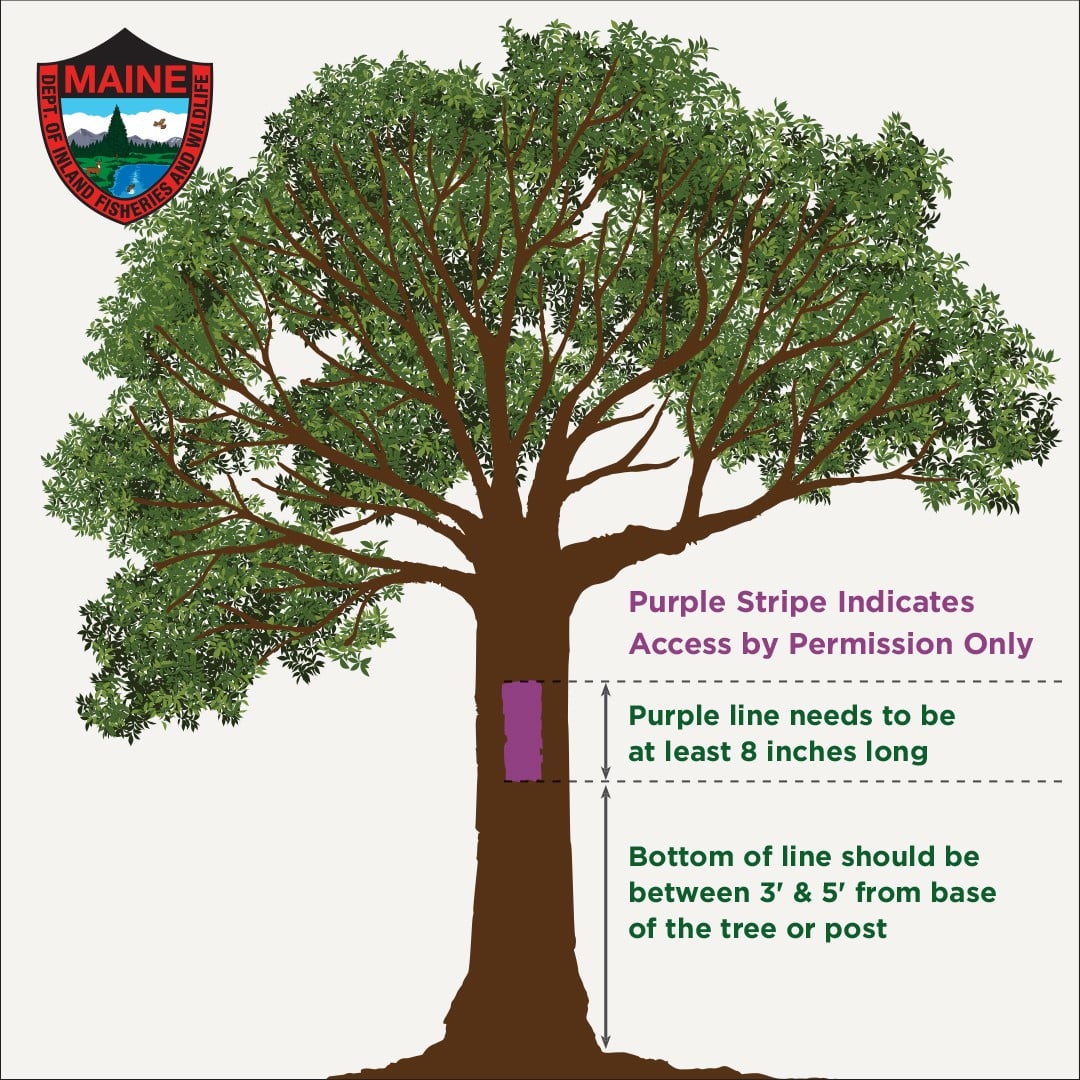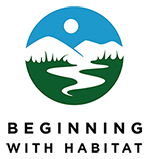Home → Programs & Resources → Outdoor Partners Program → Landowner Support
Opening Your Land to the Public
We’re Here to Support Maine’s Landowners
Outdoor Partners, MDIFW's Landowner Relations Program, works to preserve Maine’s unique history of public access to private land by promoting responsible land use to the public, educating landowners about their rights, liabilities, and options; forming partnerships, and supporting landowners. Learn more about Outdoor Partners.
If you are a landowner and have questions or need support, please contact:
Corporal Andrew Smart
(207) 287-5240 Office
(207) 557-5083 Mobile
andrew.r.smart@maine.gov
Corporal Kris MacCabe
(207) 287-5240
(207) 557-0839
kris.maccabe@maine.gov
Stay Connected
Landowner Liability — Frequently Asked Questions
If someone comes onto my land and gets hurt, am I liable?
No, except in rare circumstances.
Maine has a strong law to protect landowners, known as the "landowner liability" law (or the recreational use statute), Title 14, M.R.S.A. Section159-A.
Per the statute, if someone uses or passes through your land or passes for outdoor recreation or harvesting, with your permission or not, you assume no responsibility and incur no liability for that person's injuries or damage to their property. And similarly, if you allow volunteers to maintain or improve your land for recreation or harvesting, you are protected from liability for their injuries.
Useful definitions taken from the landowner liability law
Premises means improved and unimproved lands, any private ways, roads, buildings, or structures on those lands, and waters standing on, flowing through, or adjacent to them, and it also includes railroad property, railroad rights-of-way, and utility corridors to which public access is permitted.
Recreational or harvesting activities are recreational activities conducted outdoors, including but not limited to hunting, fishing, trapping, camping, environmental education and research, hiking, rock climbing, ice climbing, bouldering, rappelling, recreational caving, sight-seeing, operating snow-traveling and all-terrain vehicles, skiing, hang-gliding, noncommercial aviation activities, dog sledding, equine activities, boating, sailing, canoeing, rafting, biking, picnicking, swimming, and activities involving the harvest or gathering of forest, field, and marine products. It includes entry of, volunteer maintenance and improvement of, use of, and passage over premises to pursue these activities, but does not include commercial agricultural or timber harvesting.
Occupant includes but is not limited to an individual, corporation, partnership, association, or other legal entity that constructs or maintains trails or other improvements for public recreational use.
Is the legal protection the same if I post my land "No Trespassing"?
Yes. As a practical matter, your legal protection is the same whether or not the land is posted.
Is it still possible for me to get sued in spite of the landowner liability law?
Yes, but it is very unlikely because (a.) a person who sues and loses must pay the landowner's legal fees and court costs, and (b.) the law protects landowners so clearly that there is little opportunity for the injured person to win. In fact, there has not been a single reported successful case against a landowner where the Maine Landowner Liability law applied.
If I am found not liable in a court of law, do I have to cover my court costs?
No. In that case, the court will award you any direct legal costs, including reasonable attorneys' fees.
Does my homeowner's or farmer's insurance provide me with protection from claims?
Under most homeowner's or farmer's liability insurance policies, the insurance company has the duty to defend, or to pay the costs of defending any lawsuits brought or threatened against you. And if you are found liable, the insurer usually has the duty to indemnify, or to pay the damages assessed against you.
Although each insurance policy has its own coverage and dollar amount limits, most home and farm liability policies will cover personal injury actions against landowners. For all practical purposes, these policies assure landowners of a paid defense of any claims made against them and assure that judgments against them will be satisfied up to the dollar amount of the policy limit.
Be sure to check with your carrier regarding your specific coverage.
Are there situations in which the landowner liability law does not protect me from liability?
Yes. The landowner liability law does not provide protection if a person is injured because of the landowner's malicious failure to guard or warn against a dangerous condition. Malicious intent may be inferred when:
- The landowner has knowledge of a highly dangerous situation, usually man-made
- The situation would have been simple to remedy or warn against, and
- The landowner failed to do so, knowing that people would likely be hurt
Use common sense. Avoid creating or allowing clearly dangerous situations on your land; and if you wish to block a road or path with a gate or other obstacle, do so with markings that are clearly visible day or night.
Am I still covered by the landowner liability law if I charge a fee to use my land?
Maybe. In general, landowners running commercial recreation on their land, such as commercial campgrounds and ski areas, are not protected.
However, landowners do not automatically lose their protection if they charge fees. The landowner liability still law applies to landowners who charge fees for entry, as long as the land is not used mainly for commercial recreation, and as long as the payment is not for exclusive use, such as club membership or event venue or campsite rental.
Tips for Controlling Access to Your Land
As a landowner, you have several options for how you'd like to manage recreational access to your property. Maine Department of Inland Fisheries and Wildlife (MDIFW) offers a free sign program to help you clearly communicate your preferences to the public. Whether you want to keep your land open, require permission, or close it entirely, choosing the right sign helps set expectations and reduce conflicts.
Sign Options for Landowners
Courtesy/Responsible Use Signs

Use this sign if you want to keep your property open to public access but remind users to be respectful and responsible. This sign makes it clear that continued access depends on users' behavior—helping protect your land while maintaining traditional public use.
Access by Permission Only


Use this sign if you want to indicate that public access for recreational use is by written permission only. Posting your name and contact information allows responsible users to request permission directly from you. People who take the time to ask are often more inclined to respect your rules and help report problems such as trespass or misuse.
You may also mark your property with purple paint to indicate "Access by Permission Only." Paint a vertical stripe at least one inch wide and eight inches long on trees, posts, or stones, between three and five feet off the ground. Stripes or signs must be placed no more than 100 feet apart and at all vehicular access points from a public road.
No Trespassing Signs

Use this sign if you want to prohibit all public access to your property for any recreational use. This clearly indicates that your land is closed to the public.
Requesting Signs
Landowners can request complimentary signs to be shipped or picked up at MDIFW's headquarters in Augusta.
Please allow 2–3 weeks for processing and delivery of signs.
Additional Tips for Landowners
Encourage users to fill out a courtesy card (PDF) so you have a record of who's accessing your land.
You may also request license plate/recreational vehicle registration numbers for added accountability.
Use this as an opportunity to share any important safety information about your property (e.g., areas with livestock, active logging, or private residences).
You can set specific conditions for access, such as foot traffic only, no motorized vehicles, or staying a set distance from dwellings.
Need Help?
For questions or assistance with controlling access to your property for recreational use, contact us at outdoorpartners@maine.gov or call (207) 287-8000.
Deer Management Assistance Program
If you are a commercial grower of crops, orchards, or nursery trees experiencing damage to these crops, orchards, or nursery trees, you may be eligible for deer management assistance program (DMAP) permits allowing for the removal of additional antlerless deer during the regulated hunting seasons. For more information, please visit our DMAP page. If you are a landowner that is interested in having additional hunters on your property or that has DMAP permits they'd like to distribute to hunters, and if you require assistance finding hunters to come to your property, please contact DMAP.MDIFW@Maine.gov
Conserve Your Land for the Future

With help from the Department’s Beginning with Habitat program, landowners can learn what wildlife lives on their property and how it fits in to the larger landscape and plan for its future in a way that preserves and enhances the quality of place for people and wildlife. Learn more about Beginning with Habitat.